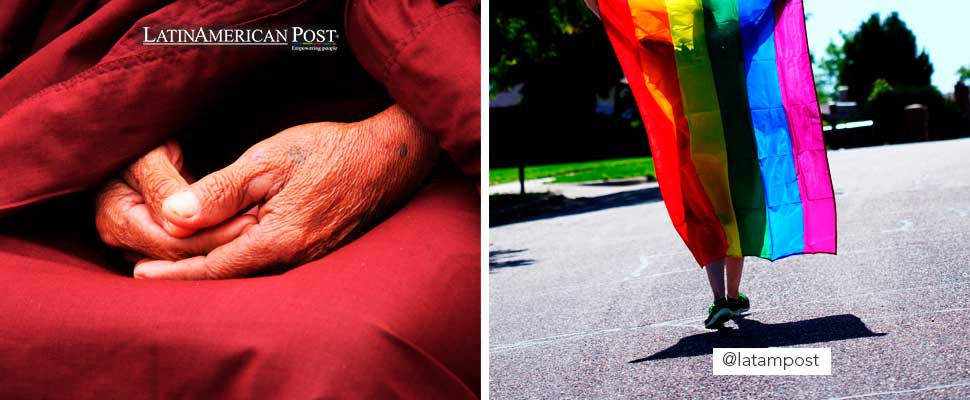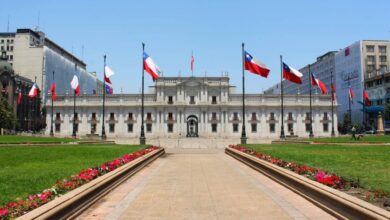Despite the fact that there were several interesting progressive Latino initiatives, there are sectors that still reject them, so the conquests will have to occur over time.

Latin America is having a “wave” of progressive policies. Photos: Pexels
LatiAmerican Post | Ariel Cipolla
Listen to this article
Leer en español: 3 nuevas leyes progresistas en América Latina: por qué los avances no están garantizados
Latin America is having a “wave” of progressive policies. Contrary to what may be believed, this not only occurs in “left” governments, but they also have space in countries with right-wing leaders, but with an openness towards inclusive social policies.
Although these policies can be considered as an achievement in the conquest of rights for new emerging social groups, the truth is that progress is not yet guaranteed. In the 3 cases that we will mention, “conservative” and resistance groups have emerged, which are against these achievements and seek to block or paralyze them. Let's see more about this.
Neutral-gender DNI in Argentina
One of the most important advances for Latin America. According to decree 476/2021 , published in the Official Gazette, people who are considered "non-binary" may choose X on the DNI. In this case, Argentina becomes a pioneer in the region and joins a list of select countries that escape the logic of masculinity and femininity, such as Canada, Australia, and New Zealand.
This news was transcendent to the point that the president's own son, Estanislao Fernández, admitted that he will seek to have his own non-binary ID. However, it has had its criticisms, not only within conservative groups but also from progressive sectors that should "celebrate" this measure.
In the first act of delivery of the new DNIs, at the Bicentennial Museum, there was an activist who showed some criticism of the measure. Florian Vives, from the #TodesConDni group, appeared with a T-shirt that mentioned “we are not an X”, in relation to the fact that the X does not represent a self-perceived identity, but is just one more letter.
On the other hand, some politicians mentioned that the decree was a negative action with human rights. For example, the national deputy of the opposition of Juntos X El Cambio, Carla Carrizo, indicated that the Human Rights rule was broken, as this had to be dealt with through law and not through a unilateral decree. Therefore, there is the possibility that, in the future, the provision will be rediscussed in the legislative chambers.
Also read: Is Bukele the key to greater Central American integration?
Euthanasia in Colombia
Here we speak of the extension of a right already acquired, although constantly vulnerable in the territory. On April 20, 2015, euthanasia had been regulated in Colombia, after the case of a patient who was suffering from terminal cancer and requested a death assisted by the State.
At the time, there were several protests against it, but it was finally regulated. However, the fact that it has been regulated does not mean that the law is adapted to all contexts. For example, according to the UNESCO Bioethics Network, since 2015 more than 40 people have had access to a dignified death, although it was difficult for others to reach it.
Amig@s les escribo con mucha dificultad para saludarles.
Estoy haciendo todo lo posible por comunicarme con COOMEVA para solicitarle una cita presencial con el internista, así poder iniciar nuevamente mi petición para una muerte digna. (EUTANACIA).
Espero que mi EPS me responda.— ???? VÍCTOR ESCOBAR Y DIANA. ???? (@Eutanasia16) July 26, 2021
The most recent case occurred with Víctor Escobar, a Colombian patient without a terminal illness who requests euthanasia, despite not complying with the requirements. Faced with this request, the Episcopal Conference of Colombia ruled against it, saying that euthanasia is "an offense to human dignity."
Finally, the Constitutional Court of Colombia expanded the requirements to access euthanasia. That is, now to those who "suffer intense physical or mental suffering" due to an incurable injury or illness, without the need to be a terminal patient. Despite the progress, the refusal of the Church and other important politicians, such as the ambassador to the OAS, Alejandro Ordóñez, may reverse the situation in the future.
Equal marriage and adoption in Chile
Finally, we have a country that joins a series of conquests that were already taking place in Latin American territory. The bill was approved in the Senate, but the initiative had reached Parliament in 2017 through former Socialist President Michelle Bachelet, which resulted in a Civil Union Agreement, approved in her term.
In this case, the difference will be given in the permits for adoption to same-sex couples. To enter into force in the next – and last – months of the presidency of Sebastián Piñera, it must be approved in the Chamber of Deputies, although there is still no fixed date for the discussion to take place.
Here there is a special situation since there seems to be a consensus in the approval of equal marriage. However, some conservative groups speak out against adoption, fearing that the child will grow up in a home that does not meet the characteristics of a “typical family”.
For example, Cardinal Ricardo Ezzati was repudiated by the Movement for Homosexual Integration and Liberation (MOVILH) when he said that "only the children of heterosexual marriage are a gift." Although it is likely that the law will end up being approved, it would not be strange if a referendum is held to find out the opinion of a population that, according to the Center for Public Studies of Chile, has approximately 72% of Catholics in the country.
As we have seen, the fact that the bills advance or are approved in different Latin American territories does not mean that they will not be hindered. On the contrary: rights must be revalidated since conservative groups also have an opinion in state policies.





